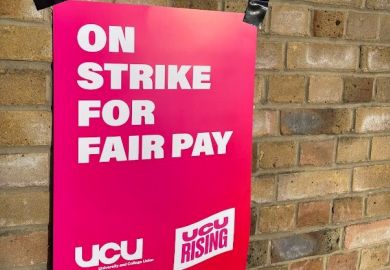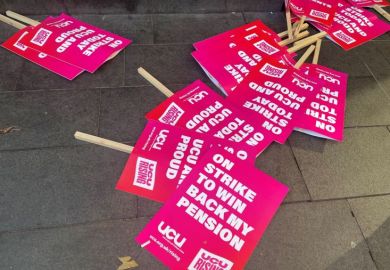Unions have welcomed confirmation that the UK’s new Labour government will scrap “minimum service levels” demanded during industrial action, which the previous Conservative administration had wanted to extend to higher education.
Ministers announced on 6 August that they would repeal the Strikes (Minimum Service Levels) Act 2023 via an upcoming Employment Rights Bill, which would be introduced during the first 100 days of Sir Keir Starmer’s tenure as prime minister.
The Tories’ legislation had allowed public service employers to issue notices to unions to ensure that a minimum service operates during periods of strike action. It initially applied to sectors such as rail, ambulance and fire and rescue services.
At last year’s Conservative Party conference, Gillian Keegan, who was then education secretary, said she would consult on extending the legislation to higher education – in a speech given in the wake of years of on-off strike action in UK universities, plus a marking boycott that affected thousands of students.
The University and College Union (UCU) was quick to oppose the announcement as an attempt to “force our members to cross their own picket lines”, but the Universities and Colleges Employers Association (Ucea) also expressed significant doubts about the move, warning that it could end up being counterproductive by damaging industrial relations further.
Leaders in other sectors appear to have taken a similar view, with no employer ever invoking minimum service levels, and Labour’s general election manifesto had pledged to repeal the act.
Jonathan Reynolds, the business secretary, said the Strikes Act “has not worked”.
“By removing minimum service levels, we will reset industrial relations, so they are based on good-faith negotiation and bargaining, ending the chaos and restoring trust in public services,” he said.
UCU has been without a mandate for industrial action since last November, when its last ballot fell short of the 50 per cent turnout threshold required for strikes.
But the union is now locked in a fresh dispute with Ucea over this year’s pay offer of a minimum increase of 2.5 per cent, climbing to 5.7 per cent for the lowest-paid. Only £900 of the rise would come next month, with the rest to follow in March 2025.
The 50 per cent turnout threshold is another Conservative-era rule that Labour pledged to repeal in its first 100 days prior to being elected.
Jo Grady, UCU’s general secretary, said minimum service levels “aimed to crack down on one of the most basic rights of the trade union movement”.
“The Tory plan to restrict the right of workers to strike and force them to cross their own picket lines was pernicious, unworkable and counterproductive, and we are glad that the legislation will be repealed,” Dr Grady said.
“UCU, alongside unions from all sectors, fought against these plans from day one and will continue to ensure that the incoming Labour government does right by those it was formed to represent.”
Register to continue
Why register?
- Registration is free and only takes a moment
- Once registered, you can read 3 articles a month
- Sign up for our newsletter
Subscribe
Or subscribe for unlimited access to:
- Unlimited access to news, views, insights & reviews
- Digital editions
- Digital access to THE’s university and college rankings analysis
Already registered or a current subscriber?








